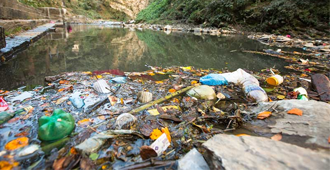Choking Hazard: How Plastic Bags are Decimating Marine Populations

Environmental Problem
Plastic bags are convenient, easy-to-use and available in just about every store across the globe. While all of these features may seem attractive, these bags are actually detrimental to our environment. These bags are not biodegradable, however, they will eventually begin to break apart. When the breakdown begins to happen, fragments of the plastic bag leave a trail that most likely finds its way into the oceans.
As a plastic bag comes apart, the toxic chemicals enter into our environment. These toxins include flame retardants, antimicrobials and fragments. Each one of these chemicals is harmful when ingested by humans or animals. While humans are unlikely to eat a plastic bag, animals are not so lucky.
A large majority of marine animals are unable to distinguish between nutritional food and plastic bag fragments. Serious health problems begin to develop in these animals as a result. For example, when a sea turtle ingests plastic particles, those particles block the turtle’s digestive tract. The turtle encounters difficulties digesting food currently in the stomach. That food releases a gas that makes it impossible for the turtle to dive down to the ocean floor for more food. If the turtle is lucky, a wildlife rehabilitation center will rescue it. Otherwise, the turtle will die of starvation.
Environmentally Friendly Alternative
There is an alternative for using plastic bags to bring items home from retail outlets and grocery stores. We can make a conscious effort to replace with reusable bags instead. Store items are easy to carry in reusable grocery bags, paper bags or canvas tote bags.
Retail stores can easily make the switch to providing shoppers with printed paper bags. Store owners can turn these shopping bags into customisable paper bags that feature their store name and logo on the face of each bag. These outlets can also provide jute bags, which come from plant fibers, or compostable bags that contain GMO-free corn starch, to their shoppers.
Making these small changes will go a long way towards preserving our environment. The ocean animals will be safe from ingesting harmful chemicals and plastic particles. All of these positive changes take place by making the simple choice to select reusable bags instead of plastic bags.

